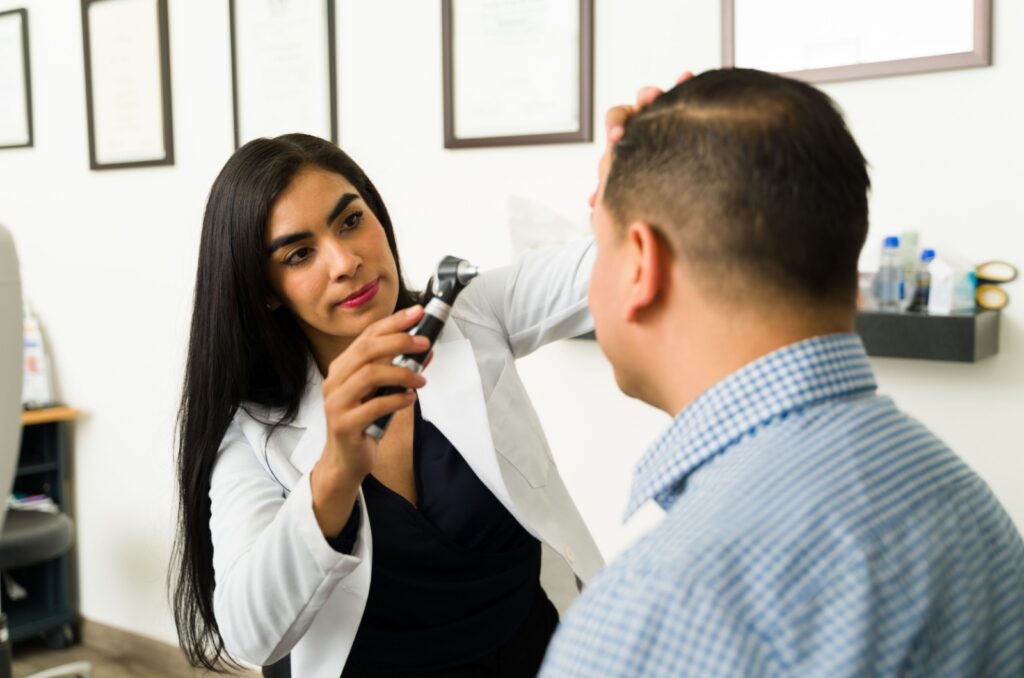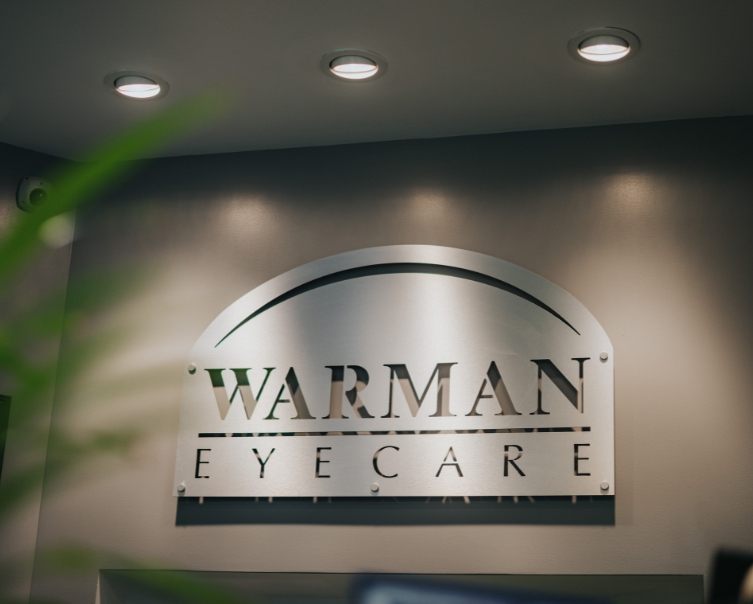When you think about an eye exam, your first thought might be checking your prescription or determining if you need eyeglasses. But did you know that a regular eye exam can reveal much more than just your vision needs?
A regular comprehensive eye exam can provide insights into your overall, and eye health by detecting damage to blood vessels and other changes in the eye caused by diabetes.
The Link Between Eye Health & Overall Health
Your eyes, often referred to ‘the windows to your soul,’ are also windows to your health. The blood vessels in your eyes can offer clues about health conditions affecting other parts of your body.
Many diseases, including diabetes, can manifest in the eyes long before you notice other symptoms, which your eye doctor can pick up before a healthcare professional. This makes regular eye exams an essential part of maintaining good vision and good health.
What Is Diabetes & How It Affects the Eyes
Diabetes is a chronic condition that affects how your body processes sugar (glucose) with the help of insulin—a hormone produced by the pancreas that regulates blood sugar. With insufficient insulin, or when the body can’t properly use the insulin produced, it can lead to high blood sugar levels.
Over time, high blood sugar levels can lead to complications, including eye problems. One of the most common issues is diabetic retinopathy, where high blood sugar damages the blood vessels in the retina (the light-sensitive tissue at the back of the eye). Diabetes can also cause other complications like:
- Macular edema: This is a condition where fluid buildup occurs in the macula, the central part of your retina responsible for sharp, detailed vision. It can cause blurry or distorted vision and progress to permanent damage if left untreated.
- Glaucoma: High blood sugar levels can damage the optic nerve, leading to glaucoma. This condition causes pressure buildup inside the eye, damaging the optic nerve and potentially causing blindness.
- Cataracts: Diabetes significantly increases the risk of developing cataracts, the clouding of the eye’s lens, which can impair vision and eventually require surgery to replace the lens.
Diabetic eye disease signs and symptoms can include the following:
- Blurry or fluctuating vision
- Prescription changes
- Blind spots
- Flashes of light
- Floaters
- Sudden vision loss
Can Regular Eye Exams Detect Signs of Diabetes?
During a comprehensive eye exam, your eye doctor can look for changes in the blood vessels in your retina, fluid leakage under the macula, or other abnormalities that might suggest diabetes. By catching these signs early, your eye doctor can recommend further tests or refer you to a primary care physician. Early detection helps you take charge of your health and significantly reduce the risk of severe complications and vision loss.
What Is a Diabetic Eye Exam?

For those who already have diabetes, a specific type of exam called a diabetic eye exam is essential every year. This exam is slightly different from a regular eye exam, focusing on diabetic eye diseases and how to prevent them from progressing.
During a diabetic eye exam, your eye doctor may perform the following tests:
- Dilation: Eye drops enlarge (dilate) your pupils, allowing them to see the back of your eye, including the retina and macula.
- Retinal photography or imaging: Advanced cameras capture detailed images of your retina to identify and monitor changes over time.
- OCT: Optical coherence tomography provides cross-sectional images of the retina, which can reveal swelling or fluid buildup.
Diabetic eye diseases can progress silently, so even if you aren’t experiencing noticeable vision problems, annual eye exams can reveal changes for early management and treatment.
Preventing Diabetic Eye Complications
Whether you have diabetes or not, taking proactive steps can go a long way in reducing your risk of diabetes and protecting your eyes and vision from disease progression:
- Get regular eye exams: Yearly eye exams are recommended for people with diabetes.
- Manage your blood sugar levels: Keep your blood sugar levels in check by following a healthy diet and taking any prescribed medications.
- Maintain healthy lifestyle choices: Movement, exercise, and weight management can reduce your risk of diabetes.
- Quit smoking: Smoking can increase the risk of developing diabetic eye diseases, so it’s essential to quit or avoid it altogether.
- Stay educated: Understanding the link between diabetes and your eyes can help you make better choices and prioritize eye health.
Prevention with Regular Eye Exams
Eye exams aren’t just for people who wear glasses or contact lenses—they’re a vital health checkup for everyone. Whether or not you have diabetes, a regular visit to your eye doctor can help detect potential health concerns early and keep your vision and health on track.If you’ve skipped your eye exam this past year, now is the time to prioritize it. Book your appointment with Warman Eyecare today because your eyes and health deserve it.









